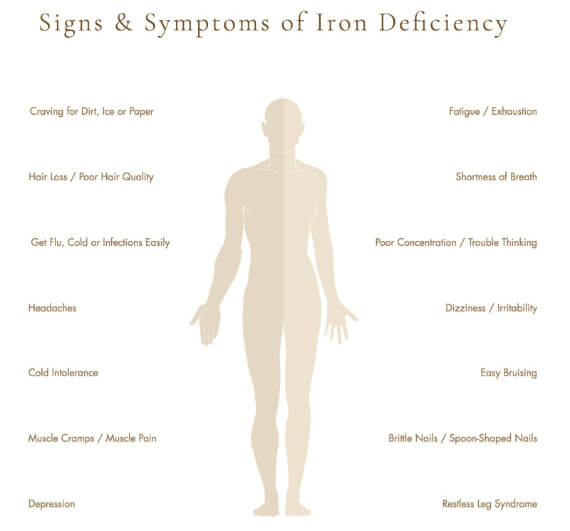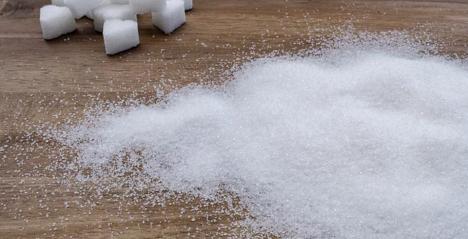Did you know that iron deficiency is the most common nutritional deficiency globally? That is correct. In fact, it affects 1 in 3 women (consistently shown in global and local data).
Unfortunately, it is usually only detected when you become anaemic, which is one extreme form of iron deficiency. You could suffer from iron deficiency for 6-7 years before you become anaemic.
“But I just got my medical check-up done and my Hb levels are fine,” reasons your brain. Would you be surprised then, if we told you that regular Hb testing does not check for iron deficiency?
How is iron deficiency different from anaemia?

Iron deficiency and anaemia are often confused – or considered the same disease. Anaemia is detected by looking at haemoglobin (HB) with a routine blood test. Iron deficiency is the most common cause of anaemia but not the only cause. More importantly, iron deficiency generally occurs years before anaemia so early treatment can avoid anaemia completely.
How to check if you have iron deficiency?
The most certain way is to ask your doctor to check your serum ferritin at the next medical check-up. Knowing your iron levels early may avoid the need for therapeutic interventions (not to mention anaemia).
What is serum ferritin?
Serum ferritin is a marker of the iron stores in your body. When the blood concentration falls below 30ng/mL, you no longer have enough iron in your body and are probably experiencing many of the symptoms of iron deficiency. In fact, only at levels above 100ng/mL can we be sure that we have enough iron in our body.
Look out for these symptoms
Do you feel fatigued? Are you experiencing unexplained hair loss? How about brain fog or poor immune function (i.e. more prone to common cold/flu)? Do you have increasing intolerance to cold?

These symptoms may collectively suggest iron deficiency. If you have one or more of these symptoms, do not take it lightly and go get yourself checked up. Simple intervention can save you years of trouble.
Why women?
Women are most at risk of iron deficiency due to regular menses. For every 1mL of blood that is lost, we lose 0.5mg iron. Over a year, a woman with heavy menses can have annual losses exceeding 500mg iron. If you consider that most women only have about 3,000mg of iron in their body, it is easy to understand why so many are at risk of iron deficiency.

To make things worse, during pregnancy the growing baby will require about 1,000mg of iron from the mother. As 40% of women enter pregnancy in an iron deficient state, too many will deliver in a highly iron deficient state (and many also anaemic due to their iron deficiency). Consequences exist for mother and baby (risk of post-partum depression, low birth weight etc.).
How to increase iron levels in the body?
Humans cannot make iron so we are 100% reliant on our diet. Iron is best absorbed from haem sources. This is not only red meat but also fish, seafood and chicken. Whilst many vegetables have high iron content, our bodies cannot absorb this phyto-form of iron nearly as well.
Many forms of oral iron tablets are available, but they can cause gastrointestinal issues including diarrhoea, constipation or nausea. It is probably not worth taking iron within a multi-vitamin pack as the iron content is very low and amount absorbed not sufficient to do much. You will probably need to take iron tablets for 6-12 months to replete your stores if you are deficient (and it is important to recheck your iron levels once starting oral iron as not everyone responds and if it’s not working for you it probably doesn’t make sense to continue taking aimlessly).
Intravenous iron (or iron administered via the veins) is a viable option for many. Clinical data continues to grow and demonstrates that IV iron offers a rapid correction of iron deficiency with just 1 or 2 injections plus symptomatic relief in a matter of days. Improvements in exercise performance as well as overall general well-being are often observed. It has also been demonstrated to be highly effective in the 2nd and 3rd trimester of pregnancy (when most women will become iron deficient – even when taking iron tablets). If oral iron isn’t working for you or if you require a rapid correction then IV iron might be an alternative to discuss with your doctor.
Iron Suites Promotion
Expat Choice has acquired 100 Iron Panel Tests (Worth SGD 52) from The Iron Suites!
These will be given to the first sign-ups from the Expat Choice Community.
STEP 1: CLICK HERE
Step 2: Select your preferred date and time
Step 3: Key in your contact details, and enter promo code <ExpatChoice-Fe> under ‘Purpose of Visit’.
A representative from The Iron Suites will be in contact to confirm your visit. You can also call in at +65 6702 1929 during office hours to make an appointment.











